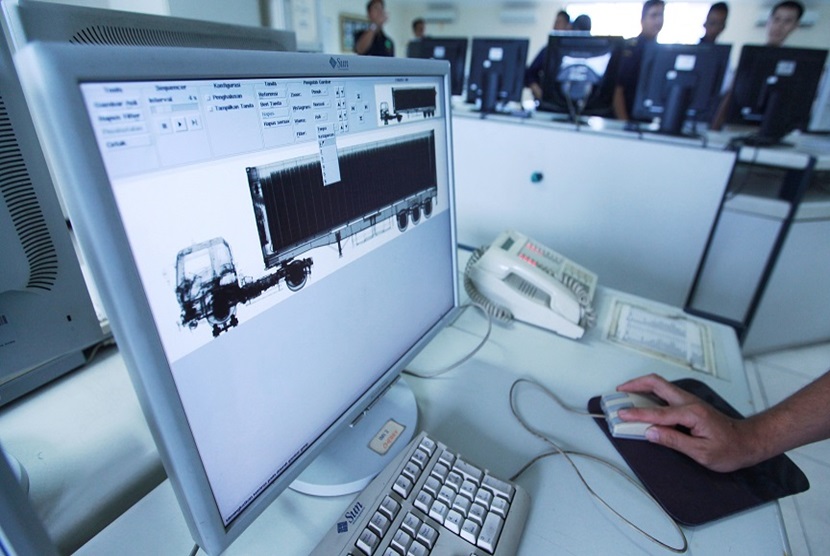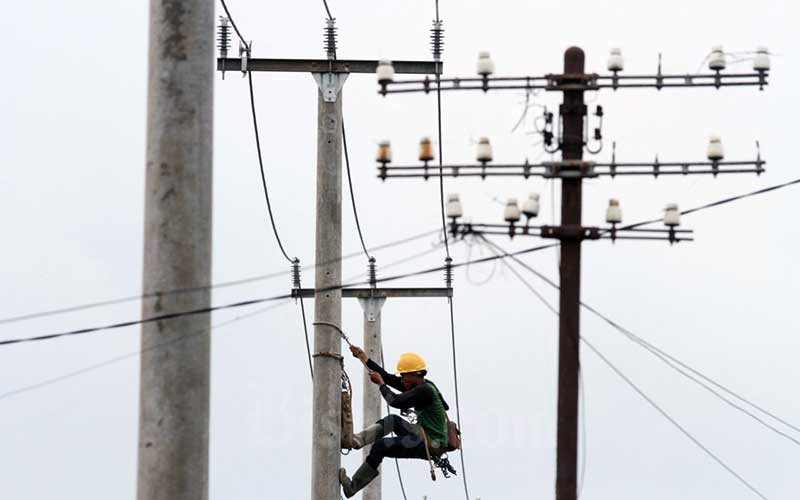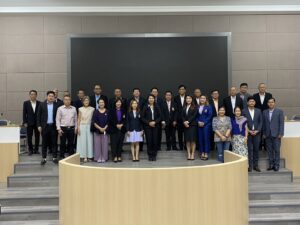[ad_1]
1.6K
WITH just a week before Lesotho’s first ever mining indaba (Khotla) gets underway, Natural Resources Minister, Mohlomi Moleko, says the event’s primary purpose is to explore means and ways in which Lesotho’s mining sector can be expanded in pursuit of economic growth and job creation.
According to Mr Moleko, while the construction and textile industries contribute meaningfully to Lesotho’s economy, the mining industry is the goose that lays the golden eggs due to its very significant contribution to Gross Domestic Product (GDP). It thus needs to be harnessed and consolidated to further strengthen its role in the economy.
Mr Moleko sat down with Lesotho Times (LT)’s political reporter, Mohloai Mpesi and cub reporter, Letsatsi Selikoe, to shed more light on the mining indaba and what Basotho should expect from it.
Excerpts:
LT: The two-day Mining Indaba Khotla gets underway next week. What does it aim to achieve?
Moleko: Looking at the mining industry and comparing it with the textiles and construction sectors, it does more than those industries combined in terms of contribution to the economy. If you take four of the biggest construction companies in the country and four from textiles, and study how much they contribute to the GDP, you will find that they don’t contribute more than the four biggest mining companies in the country.
The four biggest mining companies last year contributed M5.7billion to the economy. So, if this industry has such a big impact with only four companies, let’s push to double them.
We are going to double the contributions from the mining industry to grow the economy.
So, through the indaba, the intention is to market Lesotho so that there is foreign direct investment (FDI) flowing into the country. We must tell Basotho about how to apply for mining concessions and seek investments in their own ways.
The door is open for anyone to come to my offices, and point out which area they want to mine…..
We must guide Basotho on how best they can raise money through partnerships so that they can also mine. The aim is to help Basotho, to connect them with investors, logistics, catering, drilling, and blasting and all other supporting services.
They must meet and have in-depth discussions to strengthen the mining industry. The intention is to see the mines increasing, considering that we have about 400 kimberlite bodies. It means we must embark on extensive exploration.
LT: What are the specific opportunities that would be explored at the indaba?
Moleko: The most important thing is to open people’s eyes about the potential of Lesotho’s minerals. We were told decades ago that there is oil in Lesotho. If you can go to Mahobong, there is a drilled place there. It was dug and then covered.
It gives one a sense that there was something there. Those people excavated and discovered something and were scared to leave it open in case something came out and caused environmental damage.
I suspect they wanted to take chances and see whether they could make money. When they realised that they couldn’t immediately get money, they closed it.
But they saw something. I just don’t understand why they would go to the trouble of digging and drilling that place only to cover it.
We have possibility of oil, shell gas, coal… women from some places in Mohale’s Hoek, use that coal to cook. There is also uranium.
I have a belief that people come to Lesotho for exploration, leave with the information and never come back when they don’t make money swiftly. They downplay things.
Look at Letṧeng for example. That mine was closed for about 20 years with De Beers claiming that there were no diamonds there. But now it is the biggest mining company in Lesotho. It contributes about M600 million or more to the GDP, annually.
There is potential, but we did not do enough exploration. The first component is to tell people what possibilities are available and invite other investors to come for inspection and further exploration.
But obviously when they are here, hope is that they (investors) should meet with Basotho with interest and form alliances or joint ventures to apply for these concessions. We must energise the industry so that people can know about it.
LT: Some of the key issues to be discussed in the conference include initiatives to ensure that the mineral wealth contributes to Lesotho’s social and economic development. Lesotho currently controls a 30 percent stake of the mining sector, with the seventy percent controlled by investors.
How are you going to change that status quo to ensure that Lesotho benefits more than the investor since these are Basotho’s minerals?
Moleko: The assumption is that Basotho don’t earn more than the mines. It’s a fallacy. It is not true.
I want to give you something factual and practical; we own 30 percent of the diamond companies, but we take more than 60 percent of their income.
LT: How?
Moleko: I like that question and I will give you an example of Letṧeng Diamonds. We own 30 percent of the shares, and they own 70 percent.
In December 2022, Gem diamonds had 2.9 billion as revenue from sales of diamonds. Legally, the government took 10% as royalties. Meaning we took M290 million, and they took zilch.
They also had a profit amounting to 450 million. From the profit the government took 25% as company income tax, which was about M112million. In the same year they declared dividends of M600million where they took only 70% (M420million) of it and the government 30% of it (M180million).
We don’t just give them this M420 million as it is. We deduct withholding tax on dividends, so 60 percent of that amount is M63million. Meaning in that M420million we deduct M63million, and they take M357million.
The total of the money received was over 700 million because there was also nonrefundable VAT that we received. We have not talked about the Pay As You Earn (PAYE) component.
So, when people come and say they (mining companies) don’t contribute enough, they are wrong. All this money we collect from them builds the infrastructure we have and pays for other service delivery expenses. It is therefore not a true representation of facts that the mining companies are reaping us off.
They literally own 30 percent after all these deductions. Then we say they are cheating us? We are in fact the ones who take 70 percent, and they take 30 percent.
Then somebody says, besides the fact that you are already taking M700 million, we should draft a law that says we should deduct 15 percent of the M290 million as VAT. Then I say no, that will collapse these mines.
Even the International Monetary Fund (IMF) and World Bank said the same thing. They warned the previous government that such a measure would collapse the mines.
They will shut down and cannot operate. Some people just say things without properly analysing the situation, then make statements that I have been bought by the mines. They don’t look at the numbers.
I have run the biggest accounting firms in Lesotho, so, this is my game. Tax!
LT: To upscale the private sector as a pillar to boosting the economy, are we going to see more local private investors in the front row, or being given primary opportunities?
Moleko: Most definitely! For a country to grow, the private sector is supposed to lead. If you don’t give the private sector an opportunity, it becomes a problem because sometimes services rendered by the government may not be efficient.
The private sector is profit oriented. When it’s time to increase electricity tariffs to be cost reflective, we worry about how Basotho will react because we are playing politics. But those services will fall, if they are not cost reflective.
We must increase the costs and then look at the vulnerable part of the nation so that we do targeted subsidies. We can’t subsidise everyone.
If you give the private sector a project to connect water in Maseru, instal meters and collect money, then we agree on the tariffs – they can do it so fast (than the government).
That way we can connect electricity and water quickly. There will never be a time you hear the phrase “there is no money”. We must move towards the private sector taking a lead.
LT: Do you think we have private sector players who have the financial muscle to establish mining companies? Or perhaps the government can meet them halfway?
Moleko: They really do have potential. But I can’t say they have the financial muscle, hence we are inviting over investors who can assist with finances and bring together people of interest.
This way good deals can be struck. It can be done when we have investors who are financially stable assisting in a way that will in future empower our people. There is really no use of having resources yet not be able to access them. So, having people who will make it possible for the resources to be accessed is all we need. All we must do is ensure that we make rules and regulations that will protect our people.
America was built by migrants and investors. Countries that attract most foreign direct investments grow and develop quickly. I have just received a call from someone in America who said they will come to the conference, they were interested. I also received a call from another person from Dubai, they said they will come.
It is impactful when government and the private sector are holding hands and working together.
LT: Is this indaba initiative being driven by the government or a private company? You will recall the public outcry ahead of the Metsi Ke Bophelo conference launch?
Moleko: This initiative is for the private sector, for the fact that they complement what our government is about. What the government is doing, is simply to provide 100% support for the initiative, with what’s necessary to ensure that rules are followed, and that everything is done accordingly. We also need to educate people on the resources Lesotho has and how to best utilise them to benefit the country.
LT: Most of the time foreign direct investments do not leave any developments in our communities. Some mining companies are accused of impoverishing communities by degrading their environments. Are we going to see changes with this new initiative?
Moleko: There are existing agreements between mines and the ministry together with communities involved. However, there isn’t a certain percentage put to such. It is really challenging because that certain percentage of the income is already claimed as royalties. However, I have given it a thought, that perhaps 1% from the same royalties should be given to the communities although it wouldn’t make much of a change. But it remains a crucial challenge to be considered.
The involved companies are also still trying to make initiatives to see how they can contribute to social development like bringing electricity closer to villages and so forth.
[ad_2]
Source link




